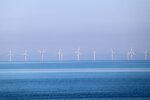02/03/2009
USA - New forecasts aim to help with wind energy
Federal researchers are developing pinpoint forecasts to help utilities predict which way the wind blows - and how strong - so they'll know how much electricity their wind turbines will generate.
The National Center for Atmospheric Research and Xcel Energy said Wednesday the new, advanced forecasts could cut consumers' costs and reduce pollution.
"Currently, if (utilities) don't trust the forecasts for wind, they can't rely completely on wind and have to have alternative services ready to go," said NCAR Program Director William Mahoney.
Running coal and natural-gas plants just in case the wind doesn't produce enough power wastes money and releases damaging carbon dioxide into the atmosphere, he said.
Mahoney said NCAR, based in Boulder, Colo., has access to data the National Weather Service doesn't, so it can provide a more accurate forecast based on a composite of local, regional and global data.
He said the forecasts will use data from satellites, aircraft, weather radar, ground weather stations and sensors on wind turbines. The information will be fed into three NCAR systems: The Weather Research and Forecasting computer model, the Real-Time Four-Dimensional Data Assimilation System and the Dynamic Integrated foreCast System.
Forecasts will be delivered every three hours.
NCAR will develop a prototype model over the next 18 months and tweak it for 12 months after that before handing the operation over the Xcel.
Test forecasts would be issued for Xcel wind farms in Colorado, Minnesota, New Mexico, Texas and Wyoming.
The National Renewable Energy Laboratory in Golden, Colo., will develop mathematical formulas to calculate how much electricity the turbines will generate at different wind speeds.
Eric Pierce, Xcel's managing director of energy trading, said the new forecasts could save Xcel $10 million to $15 million over the first two years.
NCAR and Xcel refused to say how much the program will costs or how much Xcel is paying. NCAR said the contract is not public because it contains proprietary information.
NCAR initially developed the advanced weather forecasting model for the Department of Defense.
"After 9/11 the DOD really wanted to improve the technology for predicting winds ... particularly for detecting hazardous plumes from terrorist attacks," Mahoney said.
He said the new forecasting model could eventually lead to more accurate forecasts around the world.
"Hopefully it will be picked up by the National Weather Service and other companies like the Weather Channel and hopefully improve forecasting," he said.
Paul Gipe, a wind energy author who runs the Web site Wind-Works.org, calls the move a step in the right direction if the U.S. wants to hit the 80 percent clean energy target suggested by former Vice President Al Gore.
Gipe said renewable energy won't become a significant part of the overall power supply without advanced forecasting models.
For more information, please contact Trevor Sievert at ts@windfair.net
The National Center for Atmospheric Research and Xcel Energy said Wednesday the new, advanced forecasts could cut consumers' costs and reduce pollution.
"Currently, if (utilities) don't trust the forecasts for wind, they can't rely completely on wind and have to have alternative services ready to go," said NCAR Program Director William Mahoney.
Running coal and natural-gas plants just in case the wind doesn't produce enough power wastes money and releases damaging carbon dioxide into the atmosphere, he said.
Mahoney said NCAR, based in Boulder, Colo., has access to data the National Weather Service doesn't, so it can provide a more accurate forecast based on a composite of local, regional and global data.
He said the forecasts will use data from satellites, aircraft, weather radar, ground weather stations and sensors on wind turbines. The information will be fed into three NCAR systems: The Weather Research and Forecasting computer model, the Real-Time Four-Dimensional Data Assimilation System and the Dynamic Integrated foreCast System.
Forecasts will be delivered every three hours.
NCAR will develop a prototype model over the next 18 months and tweak it for 12 months after that before handing the operation over the Xcel.
Test forecasts would be issued for Xcel wind farms in Colorado, Minnesota, New Mexico, Texas and Wyoming.
The National Renewable Energy Laboratory in Golden, Colo., will develop mathematical formulas to calculate how much electricity the turbines will generate at different wind speeds.
Eric Pierce, Xcel's managing director of energy trading, said the new forecasts could save Xcel $10 million to $15 million over the first two years.
NCAR and Xcel refused to say how much the program will costs or how much Xcel is paying. NCAR said the contract is not public because it contains proprietary information.
NCAR initially developed the advanced weather forecasting model for the Department of Defense.
"After 9/11 the DOD really wanted to improve the technology for predicting winds ... particularly for detecting hazardous plumes from terrorist attacks," Mahoney said.
He said the new forecasting model could eventually lead to more accurate forecasts around the world.
"Hopefully it will be picked up by the National Weather Service and other companies like the Weather Channel and hopefully improve forecasting," he said.
Paul Gipe, a wind energy author who runs the Web site Wind-Works.org, calls the move a step in the right direction if the U.S. wants to hit the 80 percent clean energy target suggested by former Vice President Al Gore.
Gipe said renewable energy won't become a significant part of the overall power supply without advanced forecasting models.
For more information, please contact Trevor Sievert at ts@windfair.net
- Source:
- Online editorial www.windfair.net
- Author:
- Posted by Trevor Sievert, Online Editorial Journalist
- Email:
- ts@windfair.net
- Link:
- www.windfair.net/...
- Keywords:
- wind energy, renewable energy, jobs, wind turbine, wind power, wind farm, rotorblade, onshore, offshore









